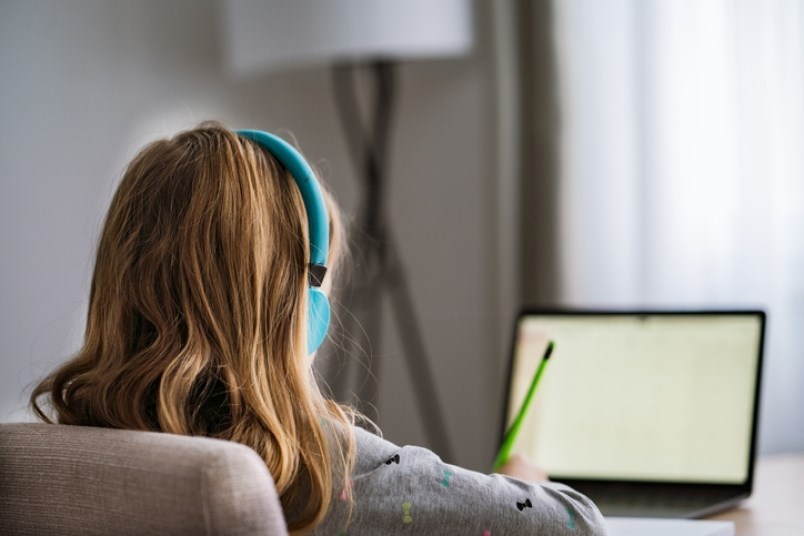Lindsay Collins isn’t exactly looking forward to going back to the virtual classroom with her two young boys for at least the next two weeks, and that's putting it in the nicest way possible.
She printed off the timetables for her eight-year-old son, Clark, and his younger brother Ethan, who is six years old. After attendance is taken virtually at 8:50 a.m., her kids jump right into their French language class.
“It's been quite a few years since I’ve been in school, so now I have to remember how to do French and be able to help vocalize that to both my kids, and then help them with their math, and help them with social sciences and health and arrange to make sure that they’re on their breaks, and get some energy out on their lunch breaks and nutrition breaks,” said Collins. “So it’s like, I’m a whole other teacher - and I didn’t sign up for that.”
Both Ethan and Clark live with autism, and now that they’re learning virtually, she says that her young boys have no access to the school-based speech and occupational learning program that’s been offered in-person at St. Basil Catholic Elementary School.
“Now, I don’t know how my kids will be getting speech because of the fact that nobody communicated that with us,” Collins said.
Now that Collins has to sit with her kids and help facilitate their learning, she says her two work-from-home businesses will no doubt suffer.
But she also worries for the overall well-being of Clark and Ethan in the long run.
“My kids will already be struggling because they want to be with their friends. They were excited…they got to go on the bus, they got to see their friends and everything like that. Then I had to tell them, ‘you guys are stuck with mommy for another two weeks.’ As soon as I said, ‘we got to use Google Classroom’ my youngest started crying because he misses his teacher,” said Collins. “Their mental health now is totally being affected by this, and I love that [Ontario Education Minister] Lecce can make all these decisions, but doesn’t know how this affects kids.”
The Children's Health Coalition - a group of children's hospitals and health providers - recently released a statement calling on the province to do all it can to get children back into classrooms by Jan. 17, the initial target date laid out by the Ontario government for a return to in-person learning.
"The harms to children and youth while schools are closed are significant," the coalition said in its statement. "Children and youth with disabilities will lose access to in person school-based rehabilitation services.
"Virtual learning and a lack of socialization with peers will create significant stress and potential mental health issues for children. Children and youth will congregate in other environments that may be less safe than schools."
Meanwhile, Collins says the province should’ve left the decision on whether or not to shut down schools for at least two weeks to public health units, as opposed to a one-size-fits-all approach.
“Can you not just allow us to have the schools open? Have the schools open, and allow us parents to make the decision if we’re going to send our kids or not,” she said.
Both the Elementary Teachers’ Federation of Ontario and Ontario English Catholic Teachers’ Association are also calling on the Ontario government to province to implement a number of protective measures for the return to in-person learning, including prioritizing booster shots for all teachers and education workers, making rapid tests available to everyone in schools, improving ventilation and installing HEPA filters in all classrooms and public areas, and continuing case count reporting and tracing at schools.
- with files from The Canadian Press
